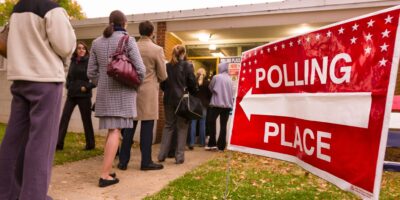Drink Your Coffee, Be Considerate, and Fight Covid-19

Lockdowns are a blunt policy instrument typical of government officials who can only pretend to know how individuals make choices and the tradeoffs they face. However, we can still be considerate of the choices people make and fight Covid-19.
The Keys of Marginalism
Marginalism is essential to understand individual choices or tradeoffs. Simply put, marginalism suggests that people make choices according to the additional costs and benefits they face.
For an uncontroversial, clarifying example, let’s take coffee-drinking. The additional benefit of coffee—measured in cups or sips if you like—can take various forms from the taste profiles to the caffeine jolt and from the camaraderie with other coffee aficionados to the conversation with your favorite barista. The additional cost of having a cup of coffee also varies, but it mainly refers to the value you place on foregone activities. That is, by drinking the next cup of coffee you might foresake the opportunity of drinking something else you might have enjoyed, or you might lose the $5 you paid the barista that you could have spent on a salad.
With the aid of marginal analysis, we recognize people do more of something when the marginal benefits outweigh the marginal costs. So it is with coffee. You have your first cup and find it to be wonderful, invigorating, and flavorful. You have a second cup; it’s still amazing, but not as much as the first. By the time you’ve had your third cup you are clearly awake, but it only tastes alright. The fourth cup is just downright awful. You get the idea—action, choices, and behavior takes place on the margin.
Another key to marginalism is that individuals perceive costs and benefits differently based on their beliefs, values, and perceptions of the world. I usually stop at the second cup of coffee, but a colleague of mine measures coffee in terms of carafes so he drinks more than I do. In his defense, it’s usually cold brew so it is pretty tasty. And of course there are the people who don’t even drink coffee—can you imagine?! All of these behaviors are made intelligible from a marginalist perspective.
One last key is that individual values are contextual; that is, they change according to a person’s situation. Imagine you were best friends with a barista and you could have coffee any time you wanted. The marginal value you placed on coffee would be lower than if you lived in a tea house where coffee was banned.
Marginalism and Responsiveness to Infectious Diseases
Marginalism gives us some explanatory power regarding human behavior. That is, if we want to understand why and how people behave—for example in response to a growing epidemic—we should consider their values. In particular, we should consider how they perceive the additional costs and benefits of the choices they face regarding potentially infectious and preventative behavior.
Economists have considered such values since the early 1990s in response to the HIV/AIDS epidemic. As the prevalence and mortality rate of HIV/AIDS rose, people—especially gay men—altered their behavior and became more cautious in their sexual behaviors. They wore more condoms, they utilized safer sexual practices, they selected partners who they perceived to be less promiscuous, and some even became celibate. There is also evidence that people—gay and straight alike—temporarily altered their sexual preferences to avoid partners, i.e., men, with a higher chance of acquiring the disease. Such behaviors tend to lower prevalence rates, all else equal, and improve the welfare of the individuals—and their partners—who voluntarily changed their sexual behaviors.
All of these people realized that the marginal benefit of engaging in preventative behavior outweighed the marginal cost, and so they did more of it.
This marginal logic even applies to H1N1 and measles. People improved their hygiene during the H1N1 pandemic—here is evidence from Mexico. People also voluntarily took fewer flights in response to H1N1. As for measles, people increased their consumption of vaccines as prevalence rates increased (see the evidence here evidence regarding Measles).
People even respond rationally as Covid-19 cases and deaths rise. Studies are still emerging (here, here, and here) that suggest people are responsive, but we can also observe Google Mobility Reports that show changes in mobility—from time spent at home to transit stations and one’s workplace—that correspond with changes in the extent and severity of Covid-19. That is, presented with information indicating higher rates of Covid-19 cases and deaths, people became more cautious in their interactions with other people—especially during the first couple months of 2020.
Elsewhere, I detail some of these responses in the form of individual behaviors like social distancing and mask-wearing, to altering production processes and innovative means of prevention, to the creation and adoption of public health rules. Aside from the NBA bubble, another fascinating story that indicates how individuals behave marginally comes from South Korea. Because of an intrusive testing and reporting program, which many consider to be a violation of privacy, people acquired more information about where potentially infected people had recently been. With such information others were able to make their own choices regarding whether they wanted to visit those places.
To some extent, these responses to infectious diseases are not surprising as they show individuals act on the margin—just like when they have their morning coffee. However, much of our commentary and policies regarding Covid-19 seem to completely ignore such logic regarding the rationality of individuals.
Covid-19 Lockdowns and Absolute Thinking
There are legitimate reasons to think lockdowns, stay-at-home orders, banning large gatherings, school closures, etc., lower transmission and mortality rates (here, here, and here), but the effect of those policies are overstated because they do not consider the marginal behaviors people engage in, let alone the innovative solutions they can devise.
Furthermore, it is not clear that the policies seen over the last year across the United States are a net benefit even if they lower transmission and mortality rates of Covid-19. That is, we might lower Covid-19 transmission, but we also impose additional burdens on individuals.
What if there was a way to achieve the same amount of Covid-19 transmission and to lower the economic and psychological burden of lockdowns? That policy would be superior to lockdowns. Unfortunately, our standard policies do not allow for the discovery of such solutions.
A New Marginalist Revolution?
Our old friend marginalism, however, can offer some solutions. Just as the advent of marginalism heralded a new age for economic science in the late 19th century—you’d know that marginalism solved the diamond-water paradox if you read your history of economic thought—so too can it help resolve our current policy troubles with Covid-19.
Instead of enacting blunt policies that merely forbid some predefined behaviors, let people innovate.
The kind of innovations we want right now—solutions that encourage preventative behavior and normal activity—are not going to come from the halls of public health departments. Those officials—as experienced and informed as they are—cannot access the knowledge of what people value or how they perceive the world around them. This is a knowledge problem issue, not a they are out-of-touch issue. While the out-of-touch aspect is troubling in our age of equality, especially when politicians break Covid-19 protocols, the former issue poses a serious limitation about what we think is possible and relevant. As much as we might like them to be a source of knowledge, expertise, and guidance, public health officials cannot be considerate of the values we hold when we make choices.
Instead of banning indoor dining, for example, allow the owners and managers of restaurants the opportunity to find relevant solutions. Facing the prospect of the loss of a majority of their customers and net revenue—granted, this has already happened—surely restaurateurs would be willing to consider ways to keep customers safe and keep them dining and follow through with those plans.
Yes, this too is marginal thinking: the marginal benefit of constructing an outdoor space outweighs the marginal cost. See how useful it is!
Indeed, restaurateurs could expand their space, construct temporary rooms, build outdoor dining areas, develop novel social distancing techniques, expand hours, etc. People who actually face the threat of closure or are losing their livelihoods are in a much better position to devise appropriate responses.
Banning indoor dining is utterly uncreative in light of these potential solutions. The public health policy pertaining to restaurants and recurring large groups should be to require a response plan and report it. I bet restaurateurs and others would oblige. By the way, many colleges and universities already did this earlier in the summer (here is one set of public health guidelines in Virginia).
Drink your coffee (or not if the costs outweigh the benefits), and consider the myriad ways individuals discover solutions to the problems they face.








